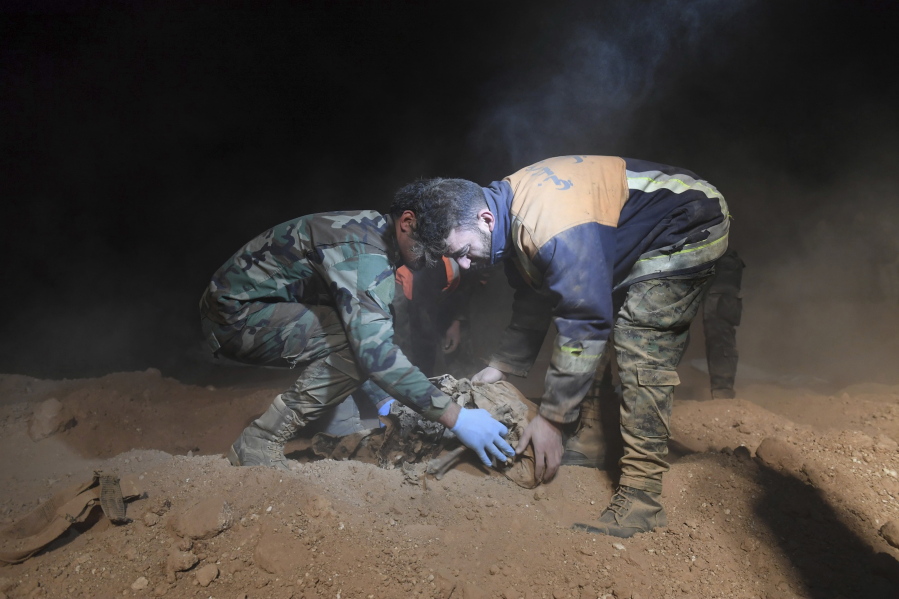BEIRUT — Syrians working to uncover mass graves in an area once ruled by the Islamic State group need help to preserve evidence, identify human remains and shed more light on the horrors perpetrated by the militants, an international watchdog said Tuesday.
Human Rights Watch said thousands of bodies — of civilians slain by the extremists, residents killed in airstrikes by the U.S.-led coalition and of IS fighters — remain to be recovered in several mass graves in and around the city of Raqqa. The appeal came in a new report released Tuesday by the New York-based group.
Local members of the Raqqa Civil Council, a governing body set up by U.S.-backed and Kurdish-led forces, are “struggling to cope with the logistical challenges of collecting and organizing information” on the bodies uncovered and providing it to families searching for missing or dead relatives, HRW said.
Raqqa was the extremists’ de facto capital and the seat of their self-proclaimed caliphate, which at the height of their power in 2014 stretched across a third of both Syria and Iraq. Since then an array of Syrian and Iraqi forces have driven IS from virtually all the territory it once held, but the group is still present in areas along the border.




